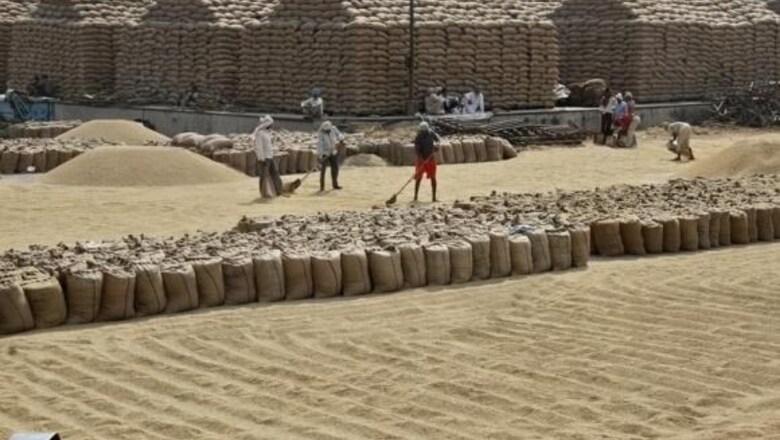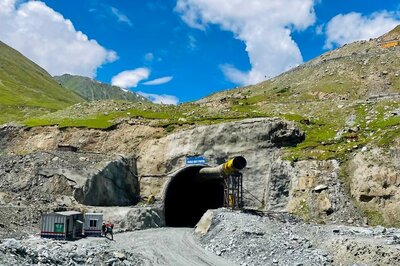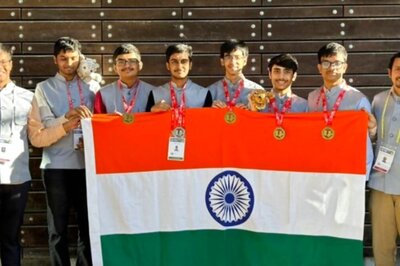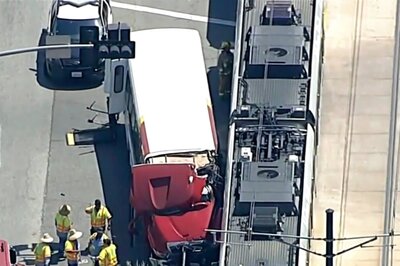
views
New Delhi: India will not support a trade protocol ahead of a July 31 deadline unless concerns about its food subsidies are met, two senior government officials said on Wednesday, a position that threatens to derail a landmark global trade deal.
The determination to link its food subsidy programme, aimed at supporting the poor, to backing the protocol raises the stakes at a World Trade Organization meeting on Thursday, with one Western diplomat calling India's position "suicide."
India is the most prevalent among a group of developing nations angry at rich countries for failing to address their concerns about the deal on trade facilitation - struck by WTO member states in Bali last year. Proponents believe the Bali deal could add $1 trillion to global GDP and 21 million jobs.
India is trying to win guarantees to protect a $12 billion annual programme to feed its poor that risks breaking WTO rules on price support subsidies to farmers.
"We have no problem with this trade facilitation (protocol), but unless they agree with us we will not allow it to happen," one of the government officials told Reuters.
"They want to cap our subsidies, which are just a fraction of what the developed countries are giving to their rich farmers," he added.
The deal was the first global trade pact reached by the WTO and was hailed as having restored credibility to the group and reviving the Doha Round of trade negotiations.
As well as causing concern abroad, the tough position has been criticized by a leading industry group in India and surprised those who expected newly elected pro-business Prime Minister Narendra Modi to radically slash the subsidy programme.
Modi has vowed to spur economic growth through sweeping changes to policies that many people felt had stagnated under the outgoing administration, and his every step is being closely monitored at home and abroad.
India has come under intense pressure from rich countries to drop its demands ahead of the WTO meeting in Geneva on Thursday, where member states hope to adopt the protocol - a key step before the deal is ratified. The deadline for adopting the protocol is July 31.
Modi's party opposed Bali deal
The trade row comes days ahead of the first visit by U.S. Secretary of State John Kerry to Delhi since Modi took office, and is a reminder that bitter trade battles that have tarnished ties between the nations in recent years may not be easily resolved.
India has a history of resorting to brinkmanship to get its way at the WTO, including in Bali where it won a four-year respite for its food subsidies.
However, while in opposition, Modi's party was fiercely critical of the agreement, saying India should not have settled for anything less than a total exemption for its food programme.
"This is a big test. This could be a huge turning point for them on how they are viewed in the developed world," said a Republican aide in Washington.
One Western diplomat complained that, at a meeting of trade ministers in Sydney last week, India had not been specific in explaining what it wanted to happen in order to support the protocol, adding that it would be self-defeating to block it.
"They say we're going to get what we want or we'll blow everything else up, but if they do that they won't even get what they want," the diplomat said.
If India's refusal to back the protocol derails the Bali deal, critics say, it could lose the four-year reprieve and face sanctions.
India subsidises farmers through minimum support prices for grains which it then stores to distribute cheaply to the poor.
The programme, currently under expansion, has led to mountains of wheat and rice in government warehouses, which critics say could be dumped into global markets.
In practice, India does not have a history of dumping grain, and its exports are usually at market prices. However, WTO rules discourage price support subsidies.
Feeding the poor is a matter of urgency for India, home to about 25 percent of the world's hungry, according to the World Food Programme, the food aid arm of the United Nations.


















Comments
0 comment